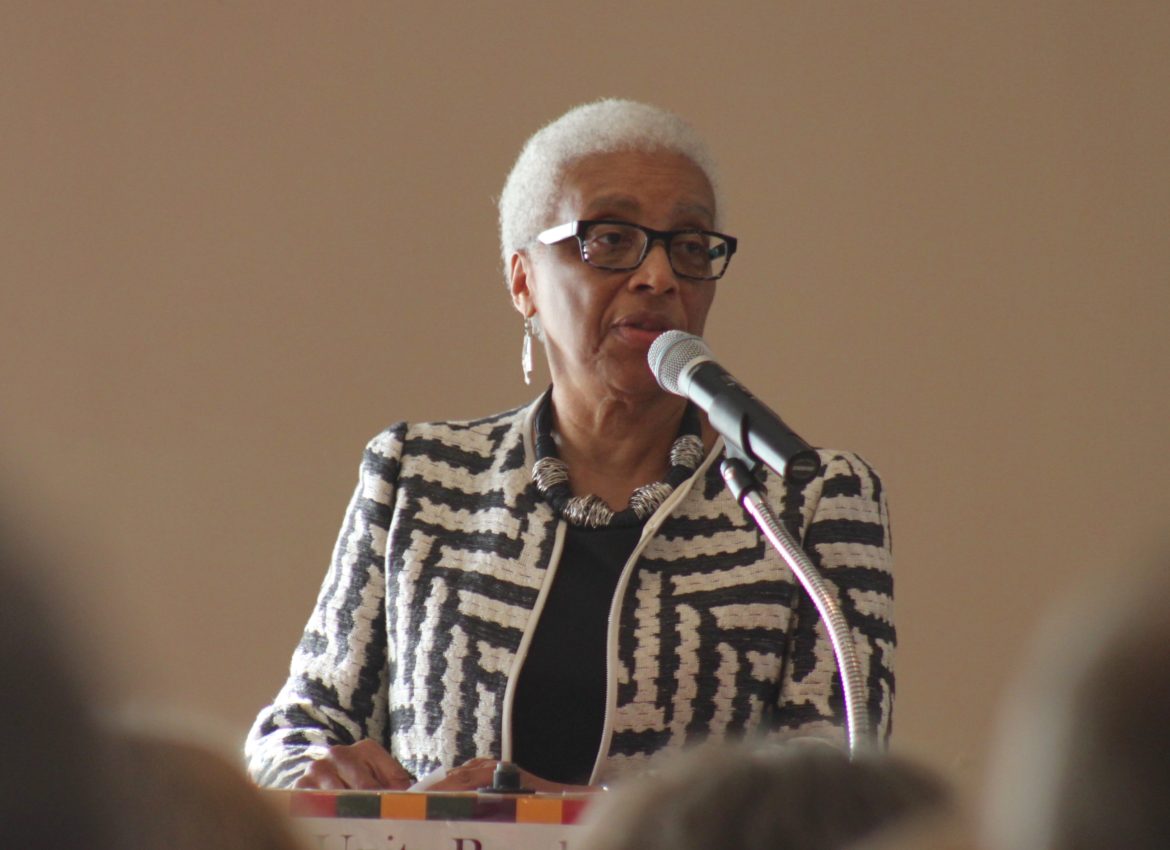
Charlie Breitrose
Associate Justice Geraldine Hines spoke about the role of the law in racial and social justice at the 17th annual Unity Breakfast.
So many people came out to the annual Unity Breakfast on Monday that extra tables were needed to squeeze in all the people wanting to celebrate the life’s work of Martin Luther King Jr., and make sure his message remains strong today.
The 17th annual Unity Breakfast was sponsored by the World in Watertown and held at the Hellenic Cultural Center.
While the focus was on King and his work on the Civil Rights movement in the 1960s, Keynote speaker Geraldine Hines pointed to similar issues that have come back to light in 2017.
Hines has served as an associate justice on the Massachusetts Supreme Judicial Court since 2014, and she has been a judge since 2001.
She said her views of the role of the law in spreading civil rights has changed. At first she saw the law as “a partner fin the struggle for racial and social justice in this country,” and pointed to the Brown v. Board of Education ruling.
“It was an important moment in our history. It opened doors to social change and led to dismantling of Jim Crow laws that inflicted pain and humiliation on black people all across the South and elsewhere,” Hines said. “It emboldened a generation of young warriors for racial justice. People like John Lewis.”
Hines said Lewis is “not all talk, is he?” referring to the recent spat between Lewis and President-elect Donald Trump, in which Lewis said he did not think Trump’s election was legitimate, to which Trump responded saying that Lewis was all talk.
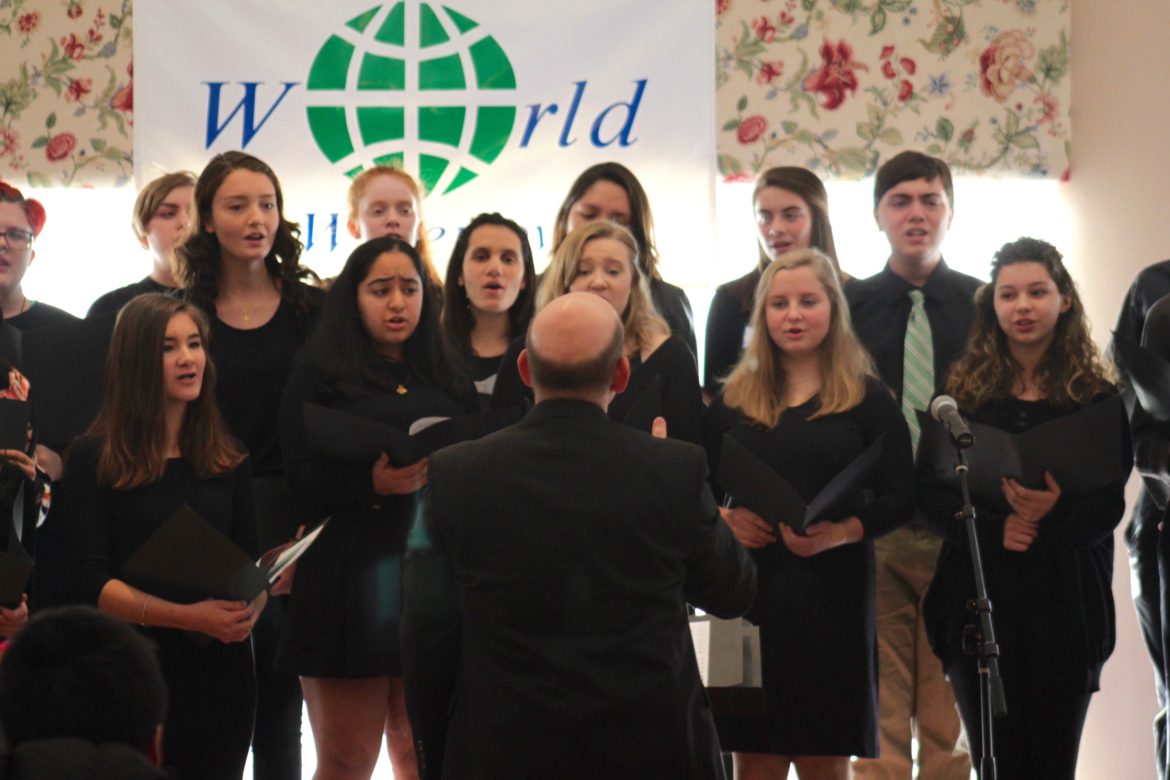
Charlie Breitrose
The Watertones acapella group from Watertown High School performed at the Unity Breakfast.
Later in her career, Hines realized that the Brown case create a monumentally false hope and faith in the law. She said there are limitations of the law being a partner in the struggle for racial and social justice, “because it yields to the interpretation placed upon it by those with the power to do so, not to the circumstances of the people affected by those interpretations,” Hines said.
A recent setback for civil rights, Hines said, was the Supreme Court’s ruling to strike down a portion of the Voting Rights Act, leading almost immediately to the passage of voter ID laws and other laws that she said limit people’s ability to vote.
‘The civil rights issues of our day present the same challenges as those demanding Dr. King’s attention. He’s just not here to help us figure out how to do it. That falls to us.”
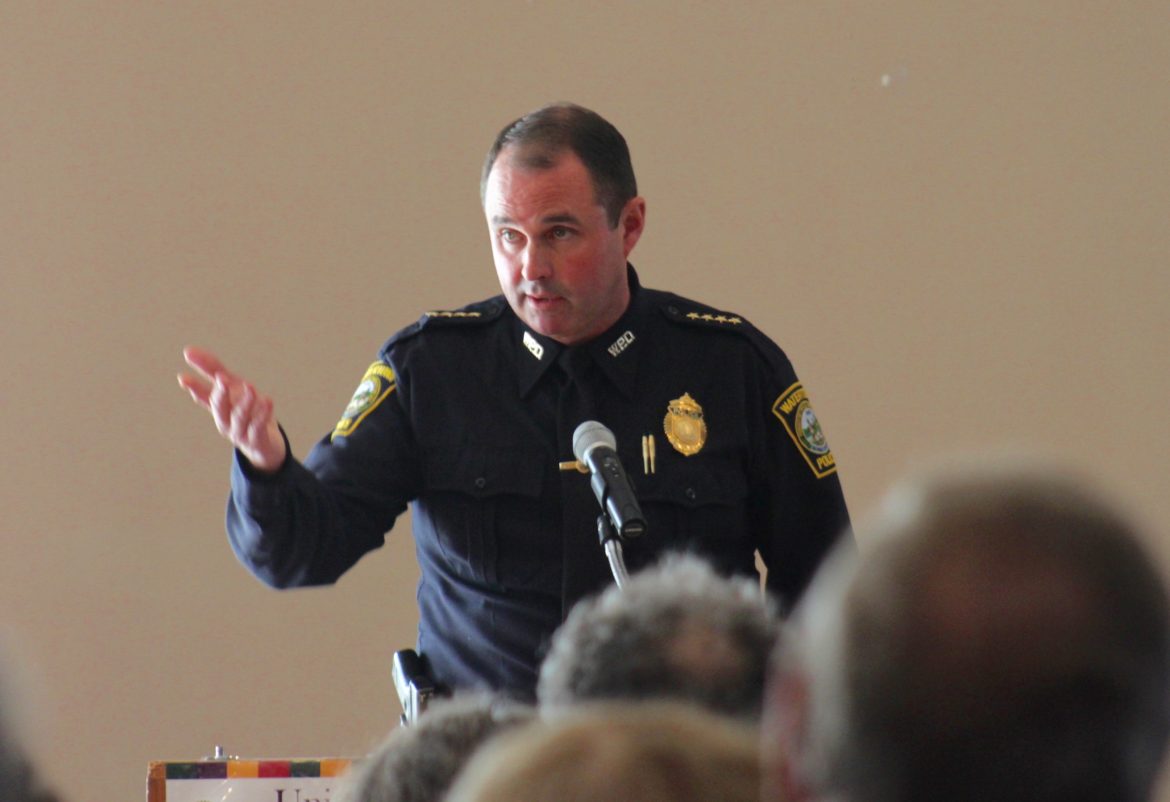
Charlie Breitrose
Watertown Police Chief Michael Lawn.
Watertown Police Serve Everyone
Among the crowd at the Unity Breakfast were several members of the Watertown Police Department, including Chief Michael Lawn. He said that while police in other communities have had bad relations with its residents, leading to distrust in police, the Watertown Police Department is committed to working with the community.
“If you call us we will be there to help,” Lawn said. “Of course we have to enforce laws, but I assure you we are not looking into citizenship issues or anything like that.”
Lawn added that many members of the Watertown Police grew up in town, continue to live in town and are raising families in town.
“We’re invested in our community,” Lawn said. “They are not just doing it for the people in the community, they are doing it for their family.”
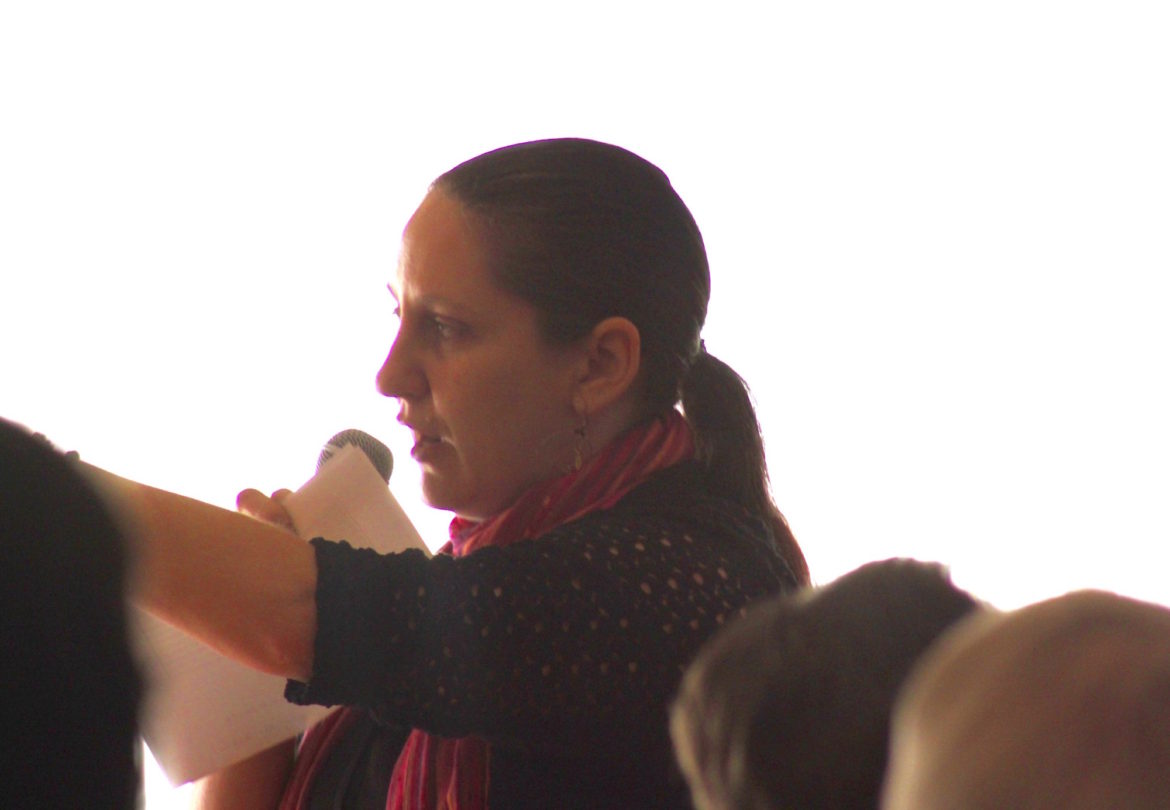
Charlie Breitrose
Watertown Middle School Teacher Ruth Henry received the Unity Award for helping to bring Kingian Non-Violence to the Watertown Schools.
Awards and Winners
Each year the Unity Breakfast Committee hands out Unity Awards to people in Watertown who have made a difference. This year, the two winners were intimately involved in the Kingian Non-Violence Training where students, teachers and police officers were trained in responding to conflicts with non-violent techniques.
Ruth Henry, a Spanish teacher at Watertown Middle School, has long been involved in teaching Kingian Non-Violence, and this fall she was able to bring it to her community and her school. She thanked the committee, and told her students to keep working and they would be the ones receiving an award. He students performed a rap about the principles of Kingian Non-Violence, and displayed a mural made of a piece of art demonstrating each principle.
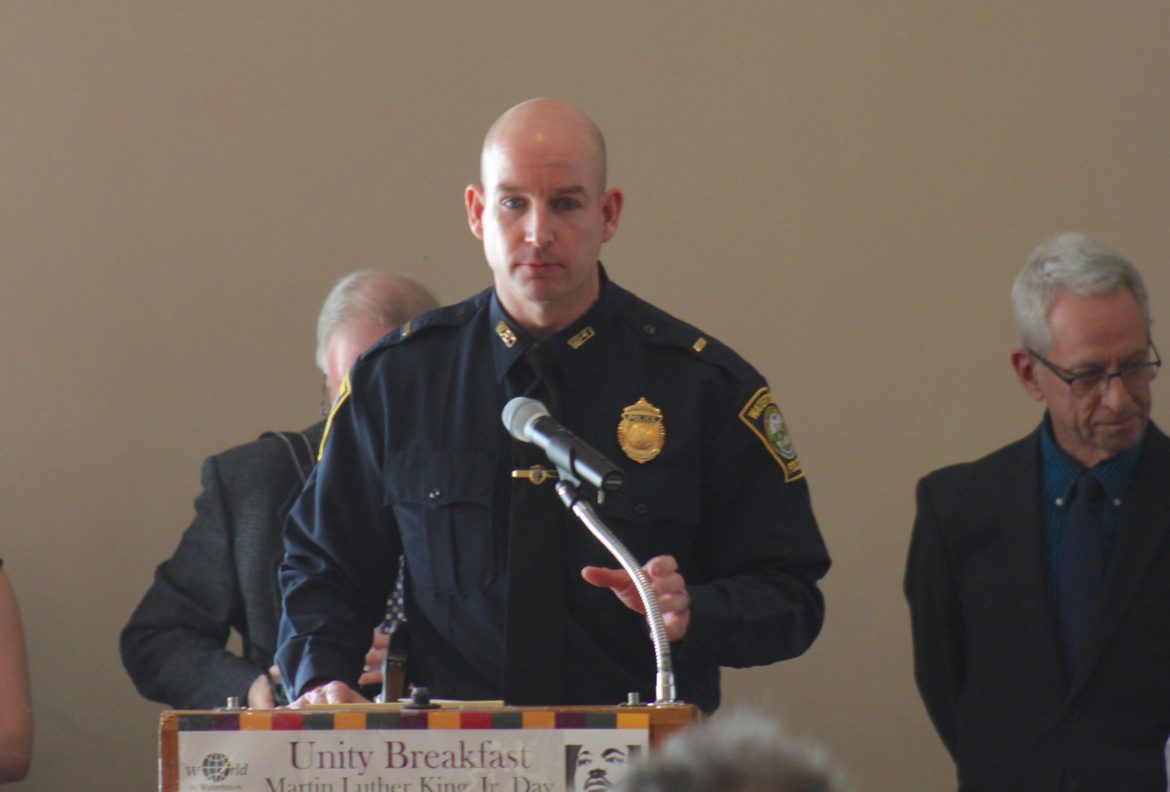
Watertown Police Lt. Dan Unsworth received the Unity Award.
The other winner was Watertown Police Lt. Dan Unsworth, who heads the WPD’s Community and Staff Development Division. He helped bring the Kingian training to the Watertown Police Department, and has also lead the Watertown Police’s response to fighting the opioids crisis in town.
The winners of the Martin Luther King Jr. School Essay contest were also honored.
The winner at the middle school was Ahkmed Bekdash, but he was unable to attend the event so runner-up Eva Henry read her essay. The Watertown High School winner, Emily Danelian, read her essay at the event. The runner-up was Rosdom Kaligian.
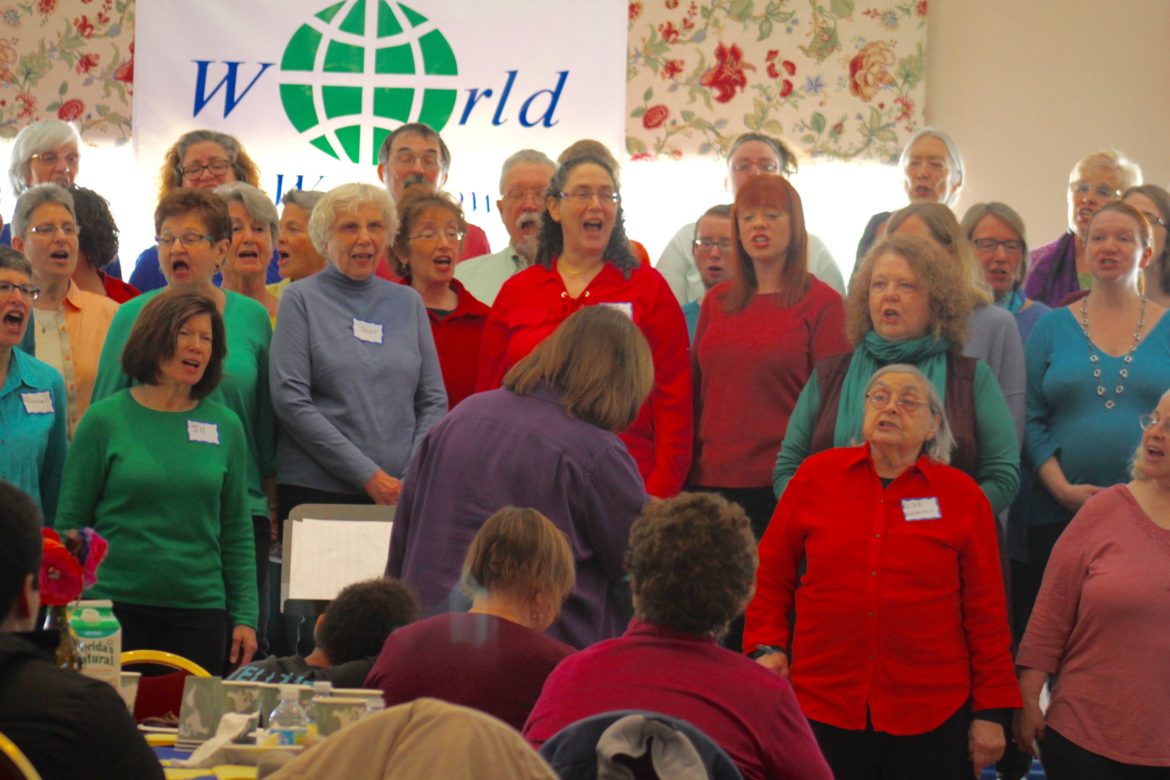
Charlie Breitrose
The Greater Boston Intergenerational Chorus performed several songs at the 17th annual Unity Breakfast.